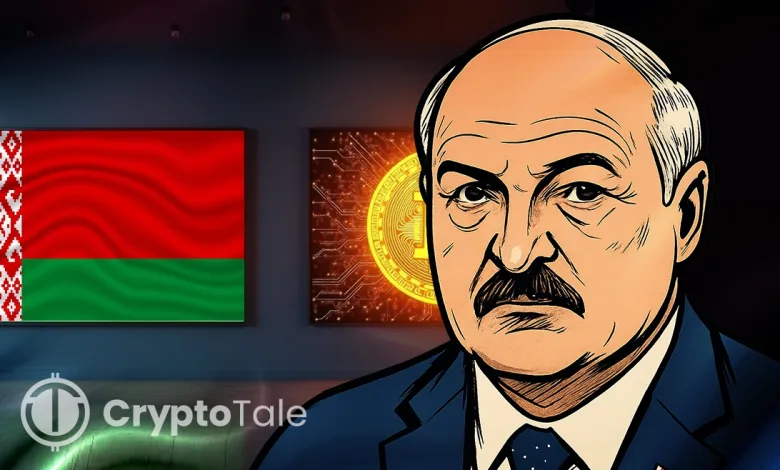European Nation Belarus Turns to Crypto Under Western Sanctions

- Crypto funds in Belarus topped $1.7B in seven months and may reach $3B by year’s end.
- Lukashenko directed banks to boost crypto use as sanctions limit traditional trade channels.
- Belarus promotes payment systems and QR code tools to speed cross-border transactions.
Belarusian President Alexander Lukashenko directed the country’s banks to expand their use of cryptocurrency as sanctions strain the economy. Addressing the heads of the National Bank and commercial banks, Lukashenko said digital tokens must become a larger part of the financial sector.
Pointing out the challenges faced by the national economy along with the Belarusian banking sector, Lukashenko stated that corresponding instructions had already been given and that immediate action is required.
The state-owned Belarusian Telegraph Agency reported that Lukashenko called for expanding crypto adoption days after asking lawmakers to develop transparent rules for the sector. The economy continues to contract under broad U.S. and European Union sanctions imposed for Belarus’s support of Russia’s invasion of Ukraine.
In his address, Lukashenko listed structural shortcomings in the banking system, including “uncontrolled fees” and gaps in leasing regulation. He pointed to cross-border payments as one of the most pressing problems. Belarusian companies have increasingly struggled to settle foreign trade transactions, forcing them to seek alternative methods. Lukashenko asked the central bank to assign staff to assist enterprises in building reliable settlement solutions.
External Payments Surge Through Crypto
Belarusian businesses have shifted to crypto-based transactions to navigate restrictions. The President told bankers that enterprises must receive help “in every way” to conduct international operations under current sanctions, adding that exchanges operating in the country, including Binance, OKX, and KuCoin, are positioned to boost their external payments by year-end.
Further, Lukashenko emphasized that cryptocurrency-based transactions are more active at present, and their role in facilitating payments is growing. Meanwhile, external payments through crypto channels reached $1.7 billion in the first seven months of 2025, and authorities predict it to $3 billion by December, reflecting rapid adoption.
Statista data shows crypto users in Belarus could exceed 855,000 by 2026, representing a 9.57% penetration rate. This growth suggests that digital currencies are becoming mainstream in a country with a population of 9.1 million.
The President also called for accelerating new payment tools and insisted on launching an instant payment system by year-end. Belarus has already introduced QR code payments, offering consumers a faster way to settle purchases. His remarks raised a pivotal question: Can crypto become the backbone of Belarus’s financial system under sanctions?
Related: Belarus Aims for Global Crypto Hub with New Regulatory Framework
Toward a Parallel Financial System
Belarus has built its crypto policy on gradual liberalization. In 2017, with the passing of Decree No. 8, smart contracts and crypto transactions were legalized, thus establishing a robust foundation for innovation. The Hi-Tech Park, modeled as a special economic zone, now hosts 18 firms serving over 300,000 clients worldwide. These platforms processed $1.2 billion in crypto transactions in 2024 and $1.7 billion in just seven months of 2025.
The government is also moving toward broader digital transformation. Authorities promote mining to monetize surplus electricity, and a digital ruble central bank digital currency is expected by 2026. This project is intended to streamline government and retail payments.
Meanwhile, risk factors still exist. Reports suggest that about half of the external crypto funds have not come back to the country, leaving many citizens to suffer losses. Weak investor protection and continued instability further add to the strain. Yet Lukashenko keeps positioning crypto as the pathway to sovereignty and autonomy.
Belarus is now aligning for integration via crypto with BRICS and Eurasian Economic Union partners. Upon reduction in dollar-based system dependence, the country is carving an alternate financial pathway to withstand Western pressure.




